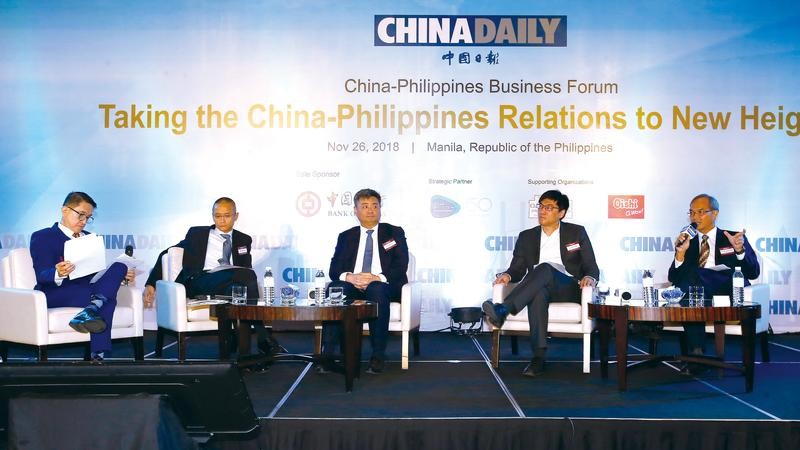2018-11-30
Pamela Lin

China and the Association of Southeast Asian Nations saw strengthened economic ties and boosted cooperation in infrastructure construction and business opportunities, speakers told the China-Philippines Business Forum held in Manila on Monday. This year is the China-ASEAN Innovation Year. Chinese Premier Li Keqiang told the 21st China-ASEAN Summit on Nov 14: “The two sides will release a joint statement on ASEAN-China science, technology and innovation cooperation, explore new mechanisms for this cooperation, work together to establish science parks, and deepen the implementation of the China-ASEAN Science and Technology Partnership Program.” In 2009, China announced it had set up a US$10-billion fund pool to support the region’s infrastructure construction. “The cornerstone of that is China wants to promote closer relationships, cooperation with the 10-member association,” said Patrick Ip, managing director of China-ASEAN Investment Cooperation Fund. Ip shared CAF’s investment philosophy during the panel discussion which focused on companies’ long-term growth and investing in a harmonious way to ensure all stakeholders are in a win-win situation. “We like to invest in the core competence of companies, invest in products and new services, and help companies make inorganic acquisitions,” Ip said. He said CAF thinks highly of digital infrastructure as one of the future drivers of the economy. “ASEAN has a very young demographic with high-level consumption. With the influence from China, the digital infrastructure will boom,” he added. According to Ip, CAF has made over 10 investments in almost all ASEAN countries since 2010. And its maiden investment was in the Philippines in 2010 when the country wanted to modernize its shipping industry and upgrade its logistics sector. Tan Qingsheng, deputy chief of mission and minister counselor at the Embassy of the People’s Republic of China in the Republic of the Philippines, told the forum China has signed a Memorandum of Understanding on Cooperation on the Belt and Road Initiative with all ASEAN members. “With the signing of the MOU, we will be able to inject fresh vitality into bilateral relations and lift our economic and trade cooperation to a new level,” Tan said, stressing that during President Xi Jinping’s visit to the Philippines, Xi and Philippine President Rodrigo Duterte decided to upgrade China-Philippine ties to comprehensive strategic cooperation. Nicholas Kwan, director of Research at the Hong Kong Trade Development Council, also joined the panel discussion, saying Hong Kong has the largest number of consulates, except for key capitals around the world. “We are in a unique position to bring governments and businesses together. And we are here to team up all of our connections to make these globalization efforts broader and deeper,” he said.